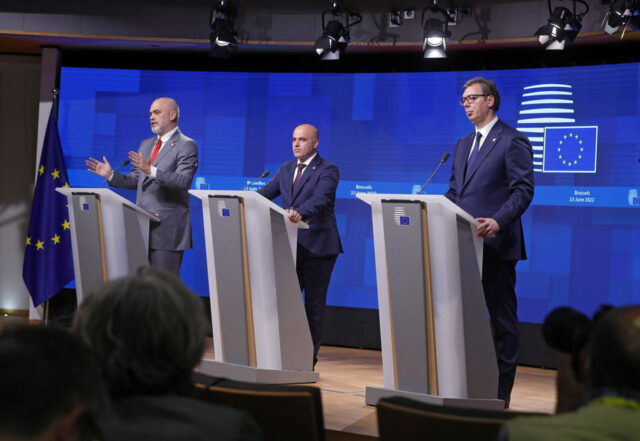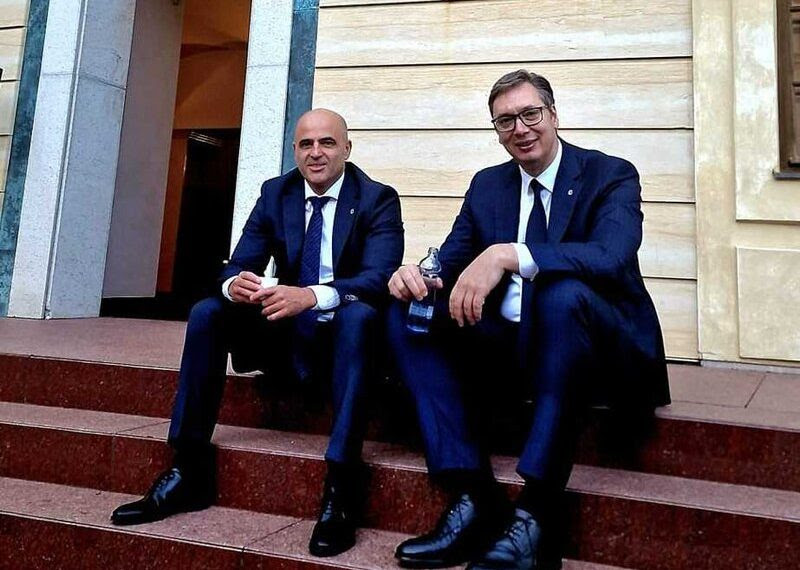What was significant for Serbia in 2022 were the April elections at all levels which confirmed the multi-year dominance of the government of Aleksandar Vucic and his Serbian Progressive Party (SNS), the election of a new Government headed by Ana Brnabic, the impact of Russian aggression on Ukraine and Serbia’s refusal to join the EU sanctions, which affected the energy crisis and European integration processes, as well as the Brussels dialogue with Kosovo for the normalization of relations, which collapsed towards the end of the year, with the enigmatic French-German proposal and the raising of combat readiness of the armed forces towards Kosovo, a situation that will condition Serbia’s policies in 2023 as well.
President Vucic described the relations between Serbia and Macedonia in 2022 as “the best relations in history”, which was influenced by the dynamics of the Open Balkans by signing many agreements, increasing economic cooperation, the export of Serbian milk, flour, food despite the ban for other countries, the closing of the only open issue – the church issue with the recognition of the MOC-OA by the SOC and joint liturgies, the joint celebration of ASNOM in Prohor Pcinski, joint cooperation in addressing the energy crisis.
And when we had certain problems, we were always close, and today we are the closest and we no longer have a single open question and I am proud to say that we have the best relations in history and I believe that we will be smart and maintain them for decades, said Vucic at the Open Balkans summit in Belgrade.
The cooperation through the Open Balkans continued to deepen the economic and political relations between Macedonia and Serbia and at the June Summit in Ohrid with the signing of an agreement facilitating the mutual recognition of diplomas and scientific degrees issued by higher education institutions and other authorized institutions in the three countries of the Open Balkans.

The historically good relations between Serbia and Macedonia remain to be upgraded in 2023 with two more important things – the final opening of the Cultural and Information Centers in Belgrade and Skopje and, after a 30-year break, the opening of the Macedonian Language Lectureship in Belgrade, which corresponds to the need of the “historical” relations between the Macedonian and Serbian people.






Comments are closed for this post.